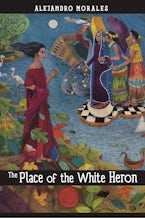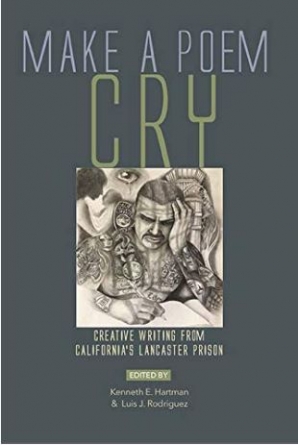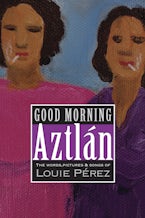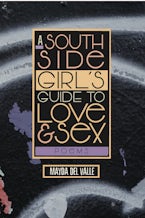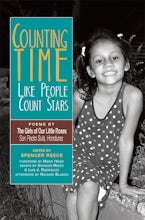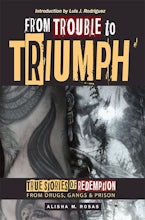Search Results
Showing results 1-10 of 43
Filter Results OPEN +

The Place of the White Heron
This novel is a parable for the twenty-first century, an allegory of the violence, racism, and international tensions between the United States and México.
The Stranger You Are
Gronk was raised in East Los Angeles and lives in downtown LA. Gail Wronsky was raised in suburban Detroit and lives in the hippie haven of Topanga Canyon. But as artists they have found common ground—a shared commitment to the offbeat and the beautiful, to the slightly absurd and the slyly surreal.
Cipota under the Moon
In Cipota under the Moon, Claudia Castro Luna scores a series of poems as an ode to the Salvadoran immigrant experience in the United States. The poems are wrought with memories of the 1980s civil war and rich with observations from recent returns to her native country. Castro Luna draws a parallel between the ruthlessness of the war and the violence endured by communities of color in US cities; she shows how children are often the silent, unseen victims of state sanctioned and urban violence. In lush prose poems, musical tankas, and free verse, Castro Luna affirms that the desire for light and life outweighs the darkness of poverty, violence, and war. Cipota under the Moon is a testament to the men, women, and children who bet on life at all costs and now make their home in another language, in another place, which they, by their presence, change every...
Coming Home in Viet Nam
Seeking the most powerful healing practices to address the invisible wounds of war, Dr. Ed Tick has led journeys to Vietnam for veterans, survivors, activists, and pilgrims for the past twenty years....
In the Courtyard of the Moon
In a simple and direct way, Ak’abal—writing in Maya K’iché—reflects the beauty, pain, sadness, and anger felt in contemporary Guatemala. He bridges a cultural divide that has plagued the Americas since the conquest, giving Indigenous peoples a voice.
Make a Poem Cry
Make a Poem Cry is an anthology of poems by inmates of a California high-security prison, written in classes given by former Los Angeles poet laureate Luis Rodríguez.
Good Morning, Aztlan
Louie Pérez is a master musician and innovative visual artist who has spent the last forty years as founding member and principal songwriter for the internationally acclaimed group Los Lobos. Working with his songwriting partner, David Hidalgo, Pérez has written more than four hundred songs. Many of those songs, along with previously unpublished poems and short stories as well as paintings, sketches, and photos, are collected in this deeply personal, yet universally appealing volume. The book also features essays by musicians, artists and scholars who artfully dissect the significance of Pérez’ work. Good Morning, Aztlán is, without question, a different kind of memoir.
A South Side Girl’s Guide to Love & Sex
As a child of Puerto Rican migrants on Chicago’s Southside, Mayda’s Del Valle’s poetry utilizes part Spanish and English, part hip-hop and salsa, part Nas and Sonia Sanchez, part Shakespeare and John Leguizamo. It is inherited history as well as traditions remixed and invented.
Del Valle creates autobiographical narratives that utilize spoken word poetry and music, intended equally for the page and live performance. Rooted in the aesthetics of hip-hop and the urban Latino experience, the poems here explore themes of healing, transformation, and the recovery of ancestral memory in the modern-day diaspora. The beauty of this collection is that the poet manages to curate the flow such that the reader can DJ the poems—arrange their own set and thus, to borrow a phrase from that system, “spin” their own performance.
Counting Time Like People Count Stars
This book has essays by Reece and Luis J. Rodríguez as a backdrop to the girls’ voices, and a foreword and afterword by poets Marie Howe and Richard Blanco. Luis and his wife Trini, a poet, teacher, and indigenous healer, also helped teach at Our Little Roses and the Holy Family Bilingual School inside a walled compound in one of the city’s poorest neighborhoods. Here poetry and stories transcend the pain of loss that often goes unexpressed. Here poetry serves as a beacon of hope and inspiration in the shadows. Here poetry can save lives.
From Trouble to Triumph
This book tells stories of six former gang members, drug addicts, and incarcerated men who lived through intense incidents of violence as well as shifts in populations, industry, and means—and how they overcame the odds.Good for use in prisons, juvenile lockups, schools, and community organizations to show that change is always possible, it is an argument for restorative justice, drug treatment, mental health
services, spiritual practices, jobs training, and the arts instead of mass incarceration.

The Place of the White Heron
This novel is a parable for the twenty-first century, an allegory of the violence, racism, and international tensions between the United States and México.
The Stranger You Are
Gronk was raised in East Los Angeles and lives in downtown LA. Gail Wronsky was raised in suburban Detroit and lives in the hippie haven of Topanga Canyon. But as artists they have found common ground—a shared commitment to the offbeat and the beautiful, to the slightly absurd and the slyly surreal.
Cipota under the Moon
In Cipota under the Moon, Claudia Castro Luna scores a series of poems as an ode to the Salvadoran immigrant experience in the United States. The poems are wrought with memories of the 1980s civil war and rich with observations from recent returns to her native country. Castro Luna draws a parallel between the ruthlessness of the war and the violence endured by communities of color in US cities; she shows how children are often the silent, unseen victims of state sanctioned and urban violence. In lush prose poems, musical tankas, and free verse, Castro Luna affirms that the desire for light and life outweighs the darkness of poverty, violence, and war. Cipota under the Moon is a testament to the men, women, and children who bet on life at all costs and now make their home in another language, in another place, which they, by their presence, change every...
Coming Home in Viet Nam
Seeking the most powerful healing practices to address the invisible wounds of war, Dr. Ed Tick has led journeys to Vietnam for veterans, survivors, activists, and pilgrims for the past twenty years....
In the Courtyard of the Moon
In a simple and direct way, Ak’abal—writing in Maya K’iché—reflects the beauty, pain, sadness, and anger felt in contemporary Guatemala. He bridges a cultural divide that has plagued the Americas since the conquest, giving Indigenous peoples a voice.
Make a Poem Cry
Make a Poem Cry is an anthology of poems by inmates of a California high-security prison, written in classes given by former Los Angeles poet laureate Luis Rodríguez.
Good Morning, Aztlan
Louie Pérez is a master musician and innovative visual artist who has spent the last forty years as founding member and principal songwriter for the internationally acclaimed group Los Lobos. Working with his songwriting partner, David Hidalgo, Pérez has written more than four hundred songs. Many of those songs, along with previously unpublished poems and short stories as well as paintings, sketches, and photos, are collected in this deeply personal, yet universally appealing volume. The book also features essays by musicians, artists and scholars who artfully dissect the significance of Pérez’ work. Good Morning, Aztlán is, without question, a different kind of memoir.
A South Side Girl’s Guide to Love & Sex
As a child of Puerto Rican migrants on Chicago’s Southside, Mayda’s Del Valle’s poetry utilizes part Spanish and English, part hip-hop and salsa, part Nas and Sonia Sanchez, part Shakespeare and John Leguizamo. It is inherited history as well as traditions remixed and invented.
Del Valle creates autobiographical narratives that utilize spoken word poetry and music, intended equally for the page and live performance. Rooted in the aesthetics of hip-hop and the urban Latino experience, the poems here explore themes of healing, transformation, and the recovery of ancestral memory in the modern-day diaspora. The beauty of this collection is that the poet manages to curate the flow such that the reader can DJ the poems—arrange their own set and thus, to borrow a phrase from that system, “spin” their own performance.
Del Valle creates autobiographical narratives that utilize spoken word poetry and music, intended equally for the page and live performance. Rooted in the aesthetics of hip-hop and the urban Latino experience, the poems here explore themes of healing, transformation, and the recovery of ancestral memory in the modern-day diaspora. The beauty of this collection is that the poet manages to curate the flow such that the reader can DJ the poems—arrange their own set and thus, to borrow a phrase from that system, “spin” their own performance.
Counting Time Like People Count Stars
This book has essays by Reece and Luis J. Rodríguez as a backdrop to the girls’ voices, and a foreword and afterword by poets Marie Howe and Richard Blanco. Luis and his wife Trini, a poet, teacher, and indigenous healer, also helped teach at Our Little Roses and the Holy Family Bilingual School inside a walled compound in one of the city’s poorest neighborhoods. Here poetry and stories transcend the pain of loss that often goes unexpressed. Here poetry serves as a beacon of hope and inspiration in the shadows. Here poetry can save lives.
From Trouble to Triumph
This book tells stories of six former gang members, drug addicts, and incarcerated men who lived through intense incidents of violence as well as shifts in populations, industry, and means—and how they overcame the odds.Good for use in prisons, juvenile lockups, schools, and community organizations to show that change is always possible, it is an argument for restorative justice, drug treatment, mental health
services, spiritual practices, jobs training, and the arts instead of mass incarceration.
services, spiritual practices, jobs training, and the arts instead of mass incarceration.

